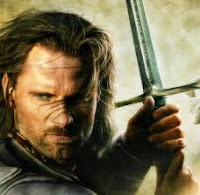Sometimes, when you have experienced trauma the best remedy is to get right back on the horse as soon as possible. It's what everyone tells you in their eagerness to help you get over things. The theory is by climbing back into the situation that caused the fallout you can quickly close the book by creating fresh associations to correct the bad ones. A sort of memory hard drive rewrite. For me, eight years ago I had a gruesome experience in Brussels working as an independent science expert. I'd been two times before that and survived, but that third experience was a humiliation too far. Such things can be a mighty lesson in humility and a positive spur to growth on many levels. Akin to ploughing deeper to produce a better crop. That depth of disturbance can also, on the other hand, do damage.
It took me around six years to be able to put the whole experience behind me. Every time I came back to write about it I felt re-traumatised. Stupid, really over something so minor. When I could, eventually, put the whole experience in print, there was a catharsis of sorts. (for details see following link - Dragging my entrails behind me) I thought I'd settled the whole ghastly business. Then, the idea of getting back on the horse was put to me. What better way to erase horrible memories and to re-write them. When I re-applied I rather suspected that the EC would write back
“WE REMEMBER WHAT YOU DID EIGHT YEARS AGO!! SOD OFF!!
They didn't. I found myself summoned to Brussels again to deal with funding applications. By the fourth day in Brussels I was drowning yet again in a sea of fear and in a total state of despair. Loved ones on Skype were confronted by a tearful me, in my hotel room, trying to articulate why I was impersonating a headless chicken.
This is a state I instantly revert to when stress levels rise above a certain level. It is characterised by huge effort, energy, endeavour, a lot of hysteria but absolutely no progress. A similar incident occurred 15 years ago while I was working for a travel agent in Rhodes (Greece) as their financial person. Here, I can guarantee those who know me are snorting in disbelief that anyone would trust me with such financial responsibilities. Entering my typical headless chicken routine I can remember the 20-year-old supervisor furious that I could not add a page of expenses and get the right answer. Such was my state, that despite an Excel spreadsheet, my calculator and even a pen and pencil basic approach did not avail me. In such moments, my degree, my PhD in physics and my mental faculties have been removed from me. That's why I call it my headless chicken routine. In such a state even finding a toilet in a strange building/airport is beyond me. What is worse I have never cultivated the veneer of professionalism to hide my discomfort. Instead of acting like ‘it is alright’, which can convince many that you are more competent than you seem, I instead really despair in gigantic waves. Everyone in my vicinity instantly recognises my distress. To summarise, not only am I a headless chicken, but I am the sort who having lost my head race about bleeding and traumatising others in the process.
Back to Brussels. After conversations via Skype with loved ones I was able to formulate a plan of sorts. What I needed was a miracle. What else could help me but divine assistance? With a strange mixture of resignation, fear and pleading in prayer, I realised a truth. Why do we only pray genuinely to God when we are totally helpless and devoid of hope? Is it that we can no longer rely on our own ability to fix things? Do we really need to have our uselessness exposed before we let go and trust. Perhaps helplessness rips away the veils that have interposed between us and our own hearts?
The next day was the last day in Brussels. There was small window of opportunity. The deadline was midday and I flew out in the evening. There were different dynamics in place. That morning really nice people helped, progress was made. Once two or three reports were completed my confidence began to be resuscitated. I came out of my headless chicken routine and completed tasks on time. I'm so grateful for this.
At times we forget to thank God for the things that work in our lives. Its good practice to cultivate an attitude of thankfulness. Not just because it is appropriate but because being grateful is conducive to happiness. Instead of looking around and seeing only what is wrong with our lives we begin to celebrate the unseen. All that is good, our family our friends and our Faith.
The night I flew back from Brussels all the shootings and killings in Paris happened. Such numbers dying, reminded me that my priorities needed re-calibrated. The fact that such events are happening in so many countries to people of different races and religions, damages us all in fundamental ways.
“Any man's death diminishes me, because I am involved in mankind, and therefore never send to know for whom the bells tolls; it tolls for thee.”
(John Donne, English poet, 1572 – 1631)
In responding to such events, a headless chicken response is just not appropriate nor productive. How often do I focus on things that don't deserve my attention or prayers? I want to be fuelled by sound principles not frenetic activity. These principles should underpin my actions and my responses. These two are as far as I've got. I offer them for what they're worth, from one headless chicken to another.
“The earth is but one country, and mankind its citizens.”
“Let deeds, not words, be your adorning.”
(two quotes from Baha’i writings)


















